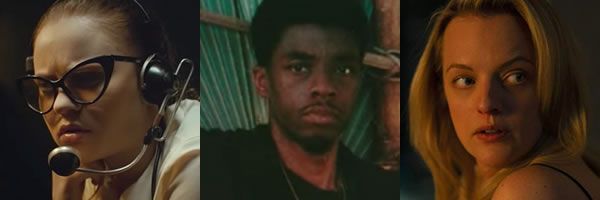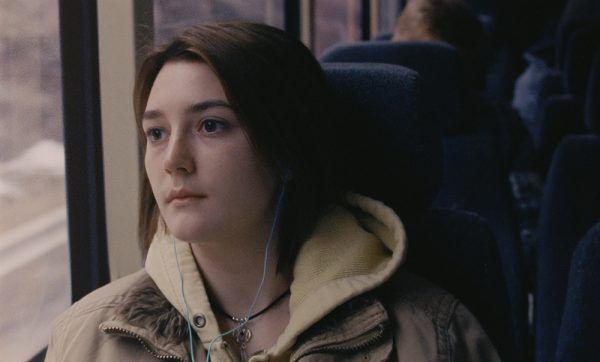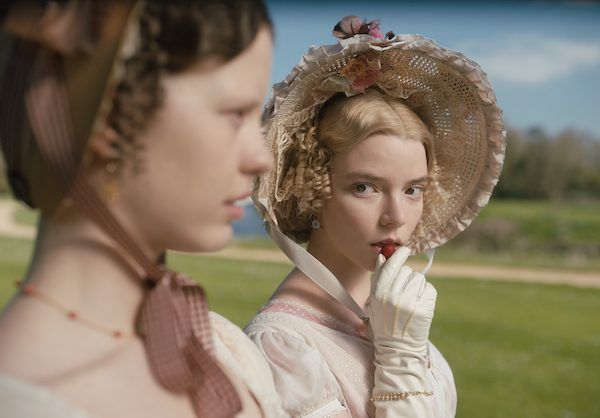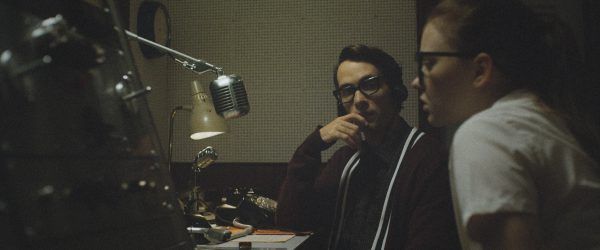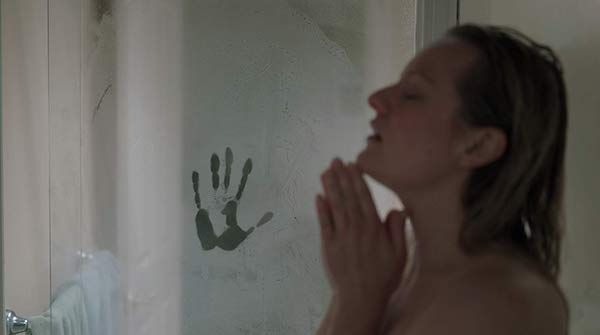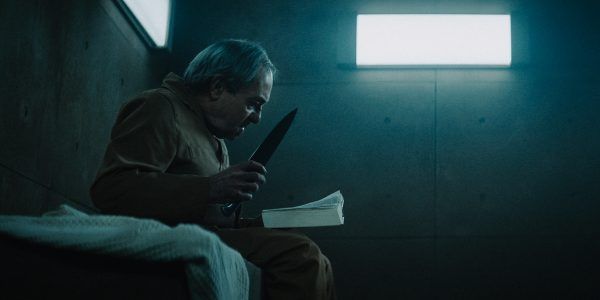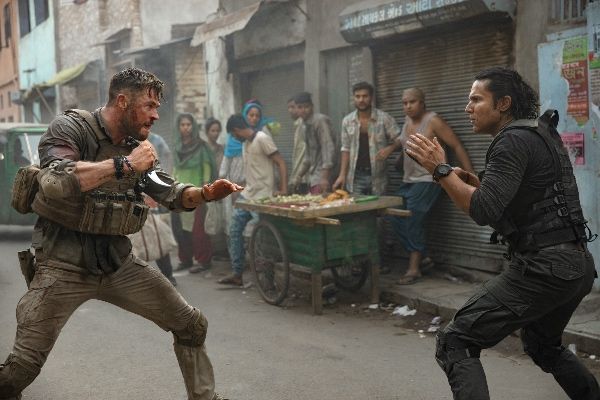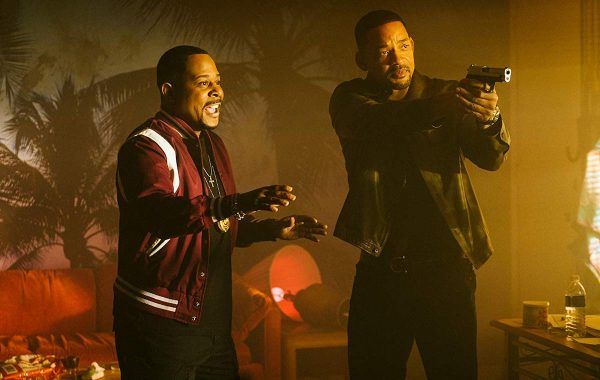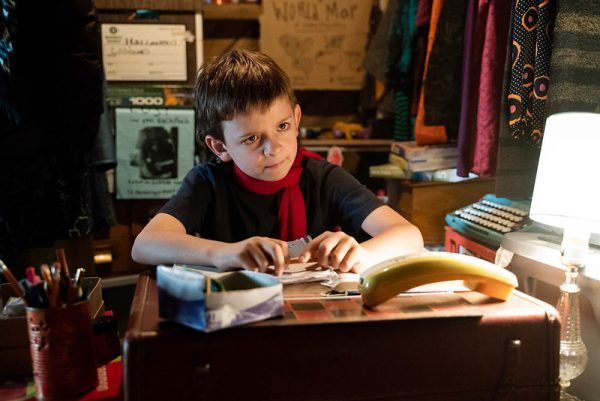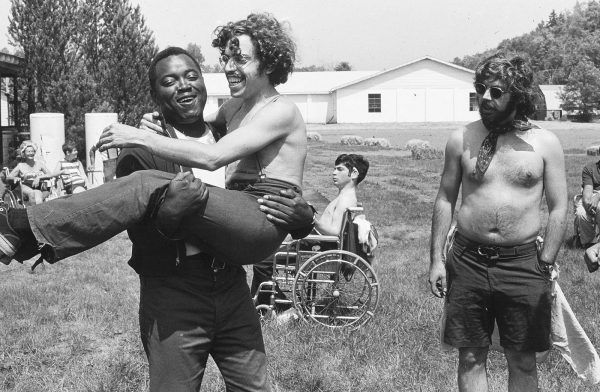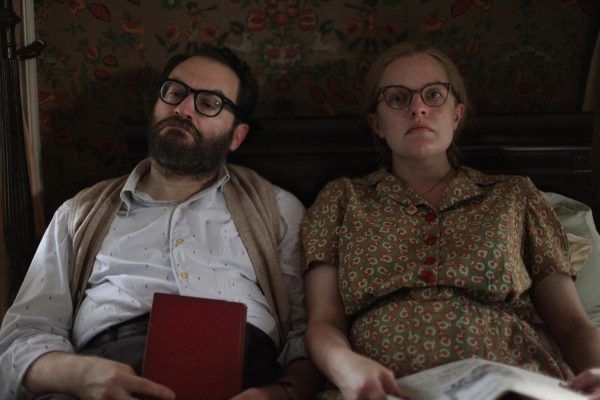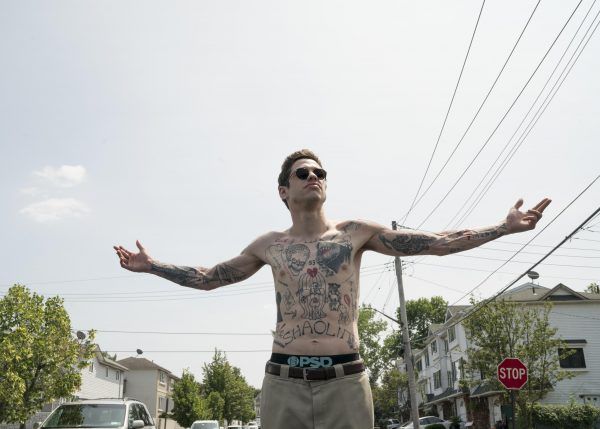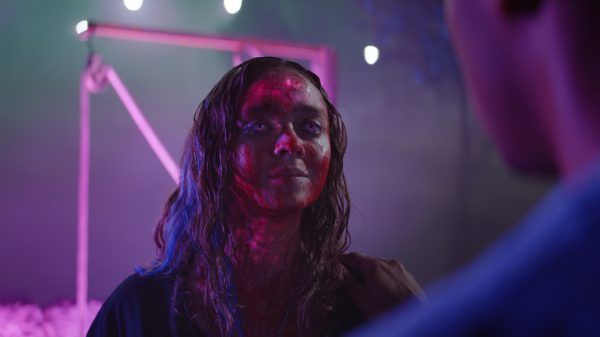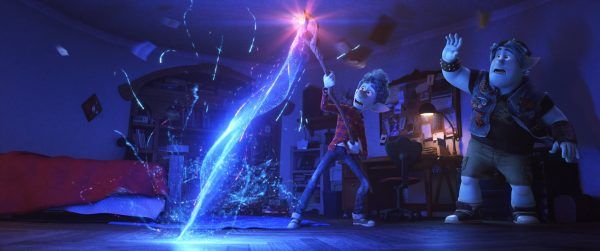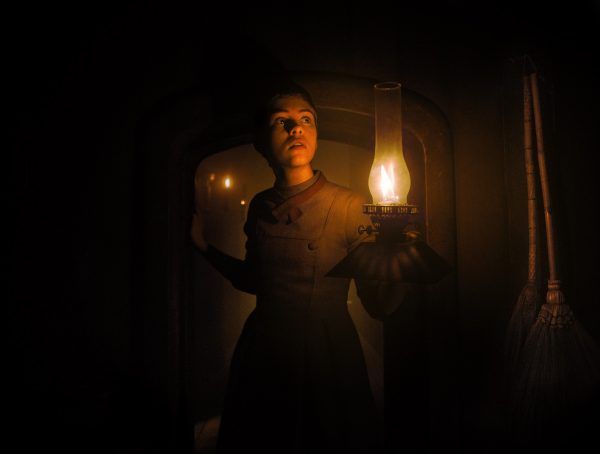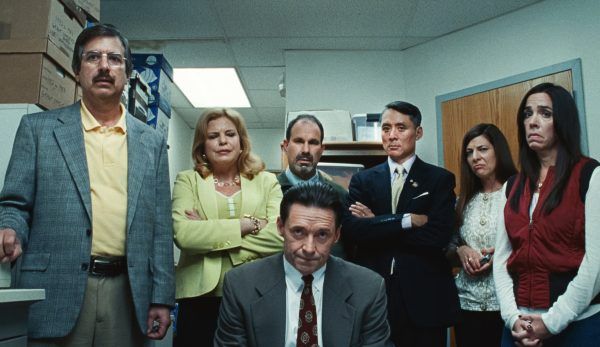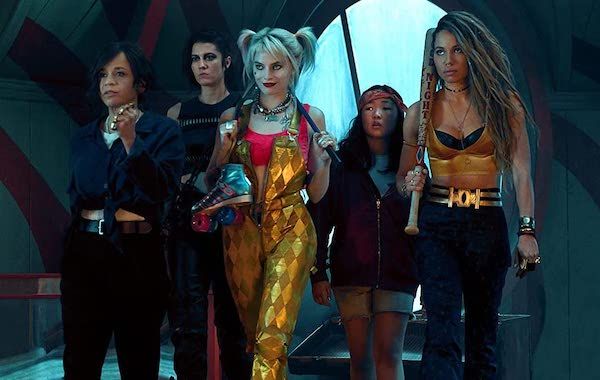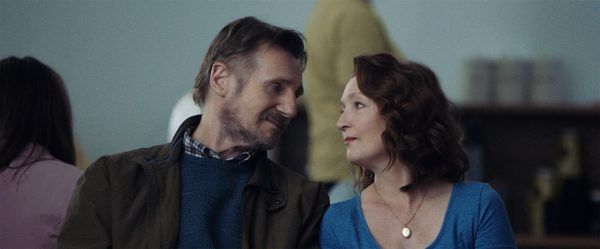This has been a weird year at the movies to say the least. Major titles like F9, Black Widow, and more have been pushed back to later in the year or into 2021. Meanwhile, streaming has taken advantage of everyone being stuck at home to make a splash with titles that may have flown under the radar in normal times. There may have been slightly fewer movies to watch this past year, but it's not like movies evaporated completely, and more importantly, there have been some great ones that are well worth your time.
With that in mind, our staff has put together a list of the 20 best films (in no particular order) of 2020 so far. All of these titles are available on some kind of VOD service, whether it's rental or subscription, and you should give them a spin.
Never Rarely Sometimes Always
Eliza Hittman's abortion drama Never Rarely Sometimes Always is not an easy movie, but it is an essential one. The story follows teenagers Autumn (Sidney Flanigan) and Skylar (Talia Ryder) as they travel from rural Pennsylvania to New York City so Autumn can procure an abortion. The film's power comes from Hittman just allowing you to sit with all the banal cruelties the world inflicts on her two leads, not as an ode to suffering, but to show we've created this bizarre system that doesn't protect life as much as it abuses women in a multitude of unseen ways. The story never feels exploitative thanks to Hittman's assured direction and the powerful performances from Flanigan and Ryder, and while it probably won't change any minds in the abortion debate, it's a powerful reminder for understanding where you stand. – Matt Goldberg
Emma.
Jane Austen's comedic novel has been adapted numerous times, but Autumn de Wilde's latest feature adaptation feels vibrant and new with a pastel palette that enraptures you in every frame. Anya Taylor-Joy plays the self-centered Emma Woodhouse in this new version, and the script stays true to the beats of the book as we've come to know them—Emma plays matchmaker, enjoys her role as Queen Bee of her social circle, and through her relationships with Mr. Knightley (Johnny Flynn) and Harriet Smith (Mia Goth) learns to be a better person. De Wilde's take is as lovely and charming as the story gets, and while Austen purists made take issue with some minor deviations, Emma. knows how to make the story feel modern and immediate without losing any of its perfectly crafted period style. – Matt Goldberg
The Vast of Night
For a movie so small, there are a lot of ways to describe The Vast of Night. The UFO-sighting sci-fi thriller has all the immediate intimacy of a podcast. All the small-town trappings of a classic Twilight Zone episode. All the grandeur of Close Encounters of the Third Kind on a 1/3 kind budget. But really, the best way to describe The Vast of Night is a remarkable feature-directing debut from Andrew Patterson, who navigates his extraterrestrial throwback with the precision and confidence of a master. In front of the camera are two extraordinary performances from Sierra McCormick and Jake Horowitz, playing a switchboard operator and radio DJ who discover a strange signal above Cayuga, New Mexico in the 1950s. Patterson divides The Vast of Night mostly into two extremes: absolute stillness and sweeping movements. He either parks the camera right on his two leads and lets them do their thing—often interacting with the unheard other side of a radio or phone—or swoops behind, around, and, on one occasion, through an entire basketball game as they bounce from place to place trying to solve this mystery. The effect is a low-budget miracle that somehow feels, well, just about as vast as the ol’ night sky. -- Vinnie Mancuso
The Invisible Man
Even though it was his second directorial effort, 2018’s Upgrade let the industry know that Leigh Whannell had arrived. And now this year, The Invisible Man confirmed that he’s got a one-of-kind eye for visual thrills and a knack for expertly weaving genre through a character study, bolstering both in the process. After the colossal disappointment of The Mummy and the utter failure of the Dark Universe, Whannell managed to justify reboots of the classic Universal monster movies by making an Invisible Man film that puts its main character first and does so with great purpose.
Elisabeth Moss leads as Cecilia Kass, a woman stuck in an abusive relationship with Adrian Griffin (Oliver Jackson-Cohen), a wealthy and very brilliant engineer. Cecilia builds the courage to make a run for it and moves in with her good friend James (Aldis Hodge) and his daughter Sydney (Storm Reid). When Cecilia gets word that Adrian opted to take his own life, it seems as though the weight of past trauma might finally lift and allow Cecilia to move forward. But soon thereafter, she becomes convinced that Adrian isn’t really gone at all. He continues to torment her but now he’s found a way to do so while making him invisible.
The Invisible Man is loaded with more stellar and stunning examples of what’s becoming known as Whannell’s signature shot, using the motion control camera. He’s also figured out a pretty clever way to keep his Invisible Man’s ability just grounded enough to make the whole scenario tactile and even more terrifying. But the driving force of the movie is undoubtedly Cecilia’s journey, and that’s why the film isn’t just a fleeting thrill that coasts on brand awareness. Moss has been delivering one show stopping performance after the next for quite a while now and her work in Invisible Man is no different. Pair that quality of work with an especially rich script that prioritizes character above all else and then toss in Whannell’s signature style and you wind up with the complete package; a worthy reboot that has something to say and earns its chills. - Perri Nemiroff
The Platform
I must have seen The Platform at least ten times now and I still can’t wrap my head around the fact that this is Galder Gaztelu-Urrutia’s feature directorial debut. He directs from an ingenious script penned by David Desolaand Pedro Rivero that puts the spotlight on Ivan Massagué as Goreng, a man who chooses to spend six months in a prison-like facility called The Hole in exchange for an accredited diploma.
Functioning as a brilliant capitalism allegory, The Hole is structure vertically with two occupants per floor. Once a day, a giant platform with a beautiful buffet of food descends, making brief stops on floor 1, floor 2, floor 3 and so on. The thing is though, that food is never replenished. The folks on floor 1 can indulge in an untouched spread, but those on floor 2 are stuck with their leftovers. Some are convinced there’d be enough for the people on, let’s say, floor 134 and lower if everyone would just take what they need and no more, but occupants rarely - if ever - exhibit such restraint and concern for others. Making the situation even more nerve wracking? Once a month, everyone is moved to a new floor. So one month, you could be living large on floor 5, but the next, you could wake up on 100 to an empty buffet table.
Not only is The Platform a downright exhilarating watch as Goreng bounces around from floor to floor, but it’s also an experience you won’t be able to shake. The Platform is mighty bleak, but if the harsh reality of The Hole sends you back out into the world, inspired to do better and to give someone else’s needs more thought, the world might be a little better off for it. - Perri Nemiroff
Extraction
In any other year, it’s entirely possible that Extraction wouldn’t have made this list. But because the coronavirus has placed a firm hold on every major Hollywood release, pushing some highly anticipated films all the way to next year, we must consider Extraction in a new light. Specifically, the light of “hey, at least I can watch Chris Hemsworth kick the living shit out of a bunch of children from the comfort of my own living room.” Extraction is a straightforward action film boosted by the inherent charm of its lead actor and the highly impressive stuntwork, most of which was done practically. It’s essentially a very competent John Wick imitator, which doesn’t seem like high praise until you consider the fact that the majority of action movies replace practical stuntwork with dull digital effects sequences. (Skyscraper, anyone?) I’ll take a well-done John Wick clone over a Fast & Furious wannabe any day (although I cherish the Fast & Furious films for being the jubilant shithouse crazy movies that they are). Plus, you get to see David Harbour suplex Chris Hemsworth through a table while wearing flip-flops and a Tommy Bahama shirt. In a year as sparse as this one, you could do a whole lot worse. – Tom Reimann
Bad Boys for Life
The most surprising thing about Bad Boys for Life, beyond the fact that they managed to convince stars Will Smith and Martin Lawrence to return to the franchise after a 17-year hiatus, is that the movie is actually good. Like, really good. Smith and Lawrence are as charismatic as ever, and the action is exciting and well-executed, but the movie also manages to be emotionally compelling as well. I enjoyed the pure character moments between Mike Lowery and Marcus Burnett as much as I enjoyed the over-the-top action sequences and comedic beats. Against all odds, Bad Boys for Life takes a nuanced and mature look at its two main characters and decides to really explore how they would feel as middle-aged guys with their best years behind them. It’s also just a freaking blast of an action movie with several laugh-out-loud moments, including a truly memorable cameo from DJ Khaled. The only bummer is that it’s a cop movie, with one scene in particular that has aged horribly since its release back in January. So if you watch it, maybe pretend that they’re superheroes? – Tom Reimann
Stargirl
Jerry Spinelli’s beloved YA novel Stargirl arrived on Disney+ in March and is very much a must-see. Musician Grace VanderWaal makes her feature film debut as Stargirl, a kind and creative teen whose arrival in the small New Mexico town of Mica causes quite a stir. We watch this story unfold through the eyes of narrator and protagonist Leo Borlock (Graham Verchere), an average young man whose entire world is changed by Stargirl. As Leo and Stargirl grow close, Leo is inspired by Stargirl’s fearlessness in being true to herself and remaining unphased by those who judge her for not conforming. Under the direction of Julia Hart and anchored by strong performances from VanderWaal and Verchere, Stargirl is a beautiful film to take in and contemplate long after the credits roll. Placing an emphasis on staying true to who you are, this is one feature which is perfect for all ages to watch. You will laugh, you will cry, and you will ultimately feel uplifted by everything Stargirl has to offer. – Allie Gemmill
Timmy Failure: Mistakes Were Made
It’s hard to find a movie as endearing or funny as the Disney+ original movie Timmy Failure: Mistakes Were Made. Based on the Stephan Pastis novel of the same name and directed by Tom McCarthy (you know, the fella who directed both The Cobbler and Spotlight), Timmy Failure follows the exploits of Portland resident Timmy Failure (Winslow Fegley), an extremely precocious grade schooler who is working hard on building his cred as the world’s best detective. Timmy’s world is turned upside down when his mom’s (Ophelia Lovibond) prized scooter is stolen and he (plus his imaginary polar bear sidekick) must go on the hunt to find it.
Timmy Failure is, at its core, a very warm and playful movie. The world in which this story lives in the product of a very bold creative vision, with a colorful cast of characters populating and breathing life into it. Fegley’s performance as Timmy is breakout-worthy, with the child actor bringing charm and depth to his role as a young detective full of conviction and spurred on by his unique way of seeing the world. He gamely goes toe-to-toe with the adult cast and proves a formidable and skilled match for co-stars Wallace Shawn, Craig Robinson, and Kyle Bornheimer. The chances of Timmy Failure earning awards season attention are slim, but that is no reason to skip this charming feature. Tune in for the great performances and a story with lots of heart and plenty of laughs. – Allie Gemmill
Crip Camp
The Netflix documentary Crip Camp is a vital and rousing tale of the slow march towards progress through activism, and in that way it resonates deeply to the moment we’re living through right now. The film shines a light on the individuals who have spent most of their adult lives fighting for disabled rights—i.e. basic human rights—with many having attended a camp for disabled teens in the 1970s called Camp Jened. Incredible footage from that time opens the film, and we then follow those teens through adulthood as their persistence and protests pave the way to pass legislation to make the world more accessible for those with disabilities. They face resistance at every turn, and seeing how long it takes for the U.S. government to take any kind of meaningful action here is heartbreaking. Ultimately this is a chronicle of activism in action, and it’s as infuriating as it is inspiring. - Adam Chitwood
Shirley
Iconic horror author Shirley Jackson was, by most accounts, a little kooky. And in the drama Shirley (now available on Hulu), filmmaker Josephine Decker takes that nugget of an idea and runs with it. The film is a fictionalized account of a couple who spends the summer living with Jackson (Elisabeth Moss) and her professor husband (Michael Stuhlbarg), getting roped into Shirley and Stanley’s torturous mind games. Moss gives one of the best performances of the year as Jackson, who’s maybe a little odd but certainly has no problem standing up for what she believes is right and just and proper. The film explores themes of sexuality, love, and artistic talent in unique ways, and indeed watching this movie feels a little bit like stepping inside the mind of the author behind The Haunting of Hill House. It’s a horror story of a very different kind. - Adam Chitwood
Da 5 Bloods
While Spike Lee's latest Netflix film Da 5 Bloods isn't as narratively tight as his Oscar-winning BlacKkKlansman, the Vietnam War drama is compelling and confrontational nonetheless. The movie ostensibly follows a group of Vietnam War veterans who return to Vietnam to retrieve the body of their fallen friend as well as buried gold, but in practice it's actually a story about how old wounds—wounds of war and wounds of racism—have a tendency to fester, haunt, and corrode over time. Da 5 Bloods has a lot on its mind (hence the 154-minute runtime), but just because it doesn't fully deliver on all the plates it has spinning doesn't mean it's not worthwhile. And Delroy Lindo in particular delivers an Oscar-worthy performance as a Black Trump supporter with deep-seeded issues that rise to the surface over the course of the film. Is it a little unwieldy? Yes. But damn is Da 5 Bloods compelling. - Adam Chitwood
The King of Staten Island
Filmmaker Judd Apatow has been threading drama into his comedies pretty much ever since The 40-Year-Old Virgin, but his latest film The King of Staten Island is his most dramatic yet. Co-written and produced by Pete Davidson, who also stars in the lead role, the film is directly inspired by the SNL star's own life and issues as it follows a directionless twentysomething who's finally forced to confront unresolved issues regarding his father's death. Davidson is actually pretty great in the lead role here, revealing complex shades to a character who masks his anxiety and depression with self-deprecating humor and a "who cares?" attitude. Apatow hones in on the dramatic arc well while still threading in comedy here and there, resulting in one of his most distinguished efforts so far. - Adam Chitwood
Color Out of Space
It was a heck of a wait for Hardware and Dust Devil filmmaker Richard Stanley to return to features after the infamous clusterfuckery of The Island of Dr. Moreau (a production so challenged it received a documentary subtitled “The Doomed Journey of Richard Stanley’s Island of Dr. Moreau”.) Fortunately, it was worth the wait. With, Color out of Space Stanley channeled a lifetime of love for H.P. Lovecraft’s writing and his one-of-a-kind eye as a filmmaker, fusing it (and if you’ve seen the film, you know I really mean fusing it) with his personal grief and traumas to deliver one of cinema’s definitive Lovecraft movies. And there aren’t a lot of them. Lovecraft is notoriously difficult to translate to the screen, but Stanley tapped into the grim, grisly existential terrors at the very heart of the stuff with the precision hand of a mad genius.
The result is a challenging, grotesque, gutting, and appropriately Weird piece of horror storytelling that takes the bones of Lovecraft’s tale of sci-fi terror and fleshed it out, turning the ill-fated Gardner family into characters you could actually root for… then just tore them the fuck apart. It’s got one of the great late-career Full-Cage performances from Nicolas Cage, gorgeous/traumatizing visuals, and way more alpaca jokes than you’re expecting. But most of all, Stanley is a filmmaker who respects and fears the Old Gods, who believes that invoking them might just provoke them; a belief that only makes his visions of horror all the more terrifying.
Swallow
If The Invisible Man has you hungry for more horror tales spun from the trauma of abuse and the empowerment of female autonomy, you’re going to want to make sure you don’t miss Swallow. Carlo Mirabella-Davis writes and directs the festival favorite, which stars the ever-underrated Haley Bennett as Hunter; a woman trapped in a stifling marriage, harboring a history of unprocessed trauma, who develops an irresistible compulsion to swallow dangerous objects. You’d be hard-pressed to find a better piece of body horror in recent memory, and watching Hunter find empowerment through her potentially deadly eating disorder is disturbing, wrenching, all but impossible to watch at times, and ultimately, quite moving. Yes, Swallow is a damn powerful piece of body horror that will have you positively retching at the screen, but it’s also a lovely character drama about the roots of self-harm and the essential importance of bodily autonomy, carried by a powerhouse performance from Bennett.
Onward
Onward had kind of a raw deal. Almost immediately after opening, into an already anxious environment, the coronavirus struck, theaters were shut down and Pixar’s 22nd animated feature was in danger of drifting into obscurity. Except that didn’t happen. Nimbly pivoting, the movie premiered first on home video and then moved to Disney+. In a weird way, Onward became an immediate favorite in a fraction of the time it takes other Pixar or Disney animated classics, by the virtue of it being so readily available so quickly. Good. Onward, Pixar’s first non-sequel since Coco in the fall of 2017, is built around an irresistible, quintessentially Pixar-y hook: what if, through a magical spell, you could spend an entire day with a parent you lost too soon? Of course, nothing goes right and the two elf brothers who cast the spell (charmingly voiced by Chris Pratt and Tom Holland) embark on a quest to successfully complete the incantation and spend more time with their long-lost dad. The world that co-writer/director Dan Scanlon conjured is as thoughtful and highly detailed as any Pixar world: it’s a modern suburban fantasy world, where the mundane and the fantastical rest snugly side-by-side, and allows for a much more relatable quest. (This movie feels like the most Amblin-y Pixar movie yet.) But of course it’s in the movie’s closing moments when it really goes for the jugular, leaving you wiping away tears even as you might laugh or yell out excitedly. Scanlon’s first film, Monsters University, was about the dignity of defeat; in Onward he focused on the heartbreak of triumph. - Drew Taylor
Gretel and Hansel
For the past few years, Osgood Perkins has made dreamy, esoteric horror films that have defied definition and become favorites for adventurous genre fans (including A24’s terrific, genuinely shocking The Blackcoat’s Daughter). Those of us who feared that his first mainstream assignment would see his aesthetic diluted were wrong to worry; Gretel and Hansel is just as gloriously odd as anything he’s done. Beginning with the 80s Orion Pictures logo, Gretel and Hanselhas the vibe of some long-forgotten VHS favorite. It’s ostensibly an adaptation of the Brothers Grimm story, but Perkins (working from a script by Rob Hayes) embellishes the material with modern sensibilities and some stunning stylistic embroidery, indebted to everything from old Hammer movies to Nine Inch Nails music videos. Sophia Lillis plays the titular lost child and Sam Leakey is her younger brother but in this version she’s not a victim; instead she learns from the old witch (played by Alice Krige) and becomes empowered. The original tale was always something of a coming-of-age fable, but in this iteration the subtext becomes text (a lecherous potential employer hisses at Gretel early on, asking if her “maidenhood is intact”). Of course, this being a Perkins film, his visuals are just as engrossing as his thematic concerns, and given a more ample budget, he’s able to conjure even more dynamic visuals: a pyramidal witch house, lepers lurking in underground caverns, an audacious switch from a widescreen prologue to a boxy 4:3 presentation for most of the feature, a moody electronic score by French musician Rob. And maybe most miraculously, Perkins was able to maintain his trademark deliberate plotting, too, creating a sustained atmosphere of dread instead at a clipped 87-minute runtime. - Drew Taylor
Bad Education
A small-scale American slice of life is amplified and heightened to grandiose American tragedy, thanks to the impeccable craft from all cast and crew on Bad Education. Based on a true story, Hugh Jackman plays the charismatic and compassionate superintendent of a Long Island school district. Allison Janney plays the tougher-talking assistant superintendent. And thanks in part to the unyielding efforts of high school journalist Geraldine Viswanathan, criminal secrets and schemes are uncovered that threaten to unravel Jackman and Janney’s lives for good. Beyond the pleasures of the “underdog crime procedural” genre components of the film (which are here, and are great), Bad Education enthralls due to its confidence and command in every facet of production. Cory Finley, who last directed the phenomenal Thoroughbreds, is defining his status as an accessible auteur alongside returning DP Lyle Vincent, and it is sumptuous to watch. Composer Michael Abels, known for his collaborations with Jordan Peele, scores the film with classical, intuitive, haunting precision, creating pieces that already sound like they’ve been in the canon for years, giving the film a timeless quality. Screenwriter Mike Makowsky gives the tight story room to breathe and explore the systemic issues and traumas lurking in the margins. And the performances? My goodness, are they something to behold. Jackman and Janney have simply never been better, and Wiswanathan will be a star for years to come. - Greg Smith
Birds of Prey (and the Fantabulous Emancipation of One Harley Quinn)
In the year 2020, it’s not hard to make “the best DCEU film thus far.” But Birds of Prey (and the Fantabulous Emancipation of One Harley Quinn) accomplishes this task with unparalleled, unprecedented flair. It backflips over the DCEU finish line with glitter bombs and double middle fingers up. It redefines how much auteurs can and should flex in mainstream superhero cinema (Cathy Yan is doing everything, and I love every second of it). It gives Margot Robbie’s Harley Quinn her necessary emancipation and thensome -- watching Robbie inhabit this role without any icky need to pacify the male gaze is a goddamn joy. Its action sequences (with assists from John Wick’s Chad Stahelski) are pounding, fluid, brutal, clear pieces of poetry. It reminds us that Mary Elizabeth Winstead is a powerhouse comedian, Ewan McGregor and Chris Messina are powerhouse villains, and Rosie Perez is a powerhouse, period. It is, sincerely, one of the wildest “mainstream action films” I’ve ever seen in a movie theater released by a major studio, and I look forward to revisiting it as the fearlessly alive pop art object it is for years to come. - Greg Smith
Ordinary Love
I am absolutely yoked out of my fucking mind about how gentle Ordinary Love is. Lesley Manville and Liam Neeson play a couple who’s been together a long time and still truly, deeply loves each other. Co-directors Lisa Barros D’Sa and Glenn Leyburn lens these moments of mutual affection in unadorned wides, allowing Manville and Neeson ample room to simply express their love, and I would watch it for 800 years if the film was 800 years long. And when Owen McCafferty’s tender screenplay (based on his real life experience) reveals the extraordinary struggle this ordinary couple must go through -- Manville’s character is diagnosed with cancer -- the film doesn’t suddenly shift into a manipulative melodrama. Yes, it’s at times harrowing and heartbreaking to watch these people go through this taxing and trying journey. But it remains authentic, grounded, real, and even hopeful. An ordinary love, with all its charming, gentle, downright boring charms, is the thing that can save us through the most trying of circumstances. And I’m simply fucking jacked out of my mind at how Ordinary Love communicates this simple fact simply. - Greg Smith

